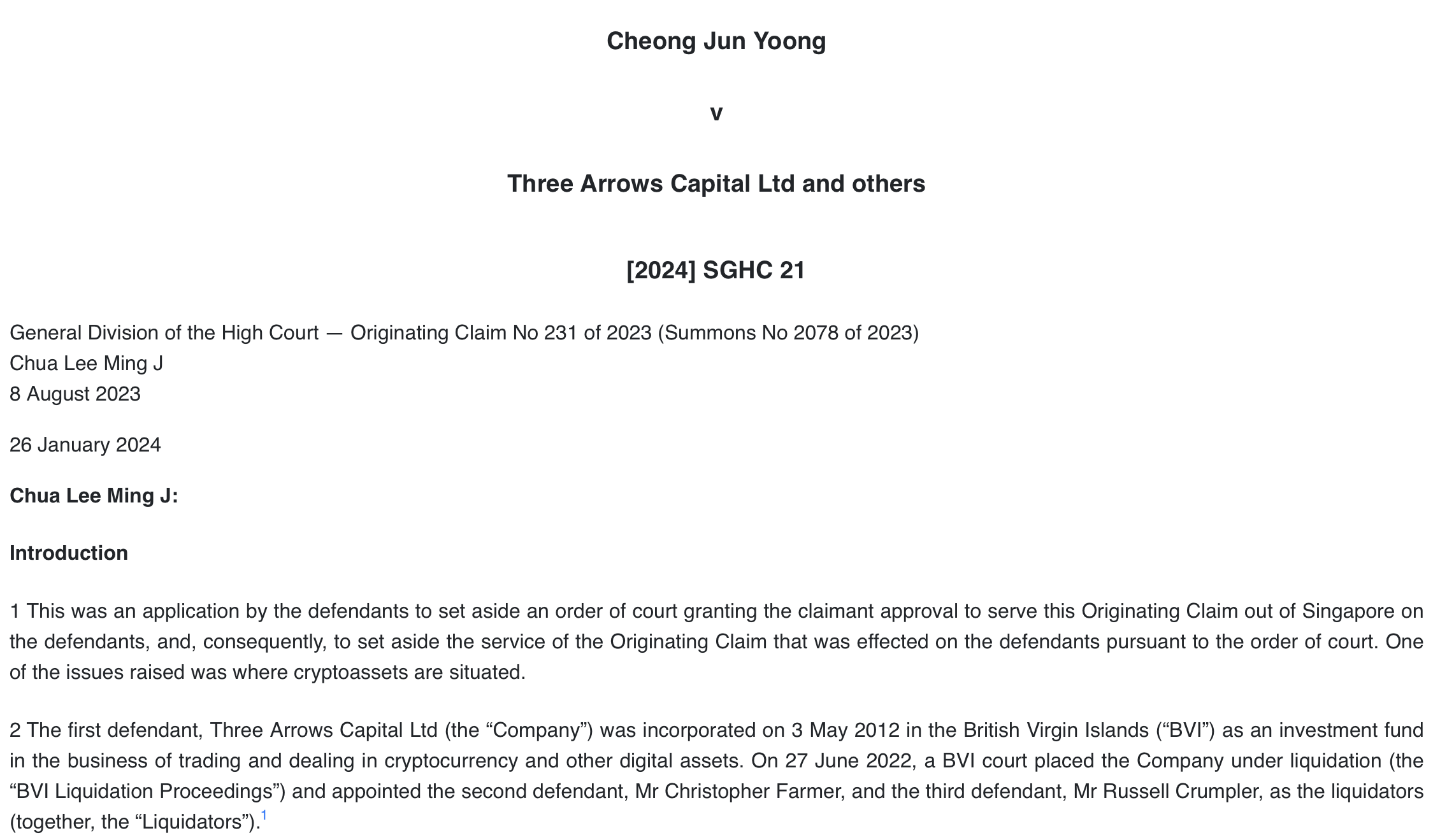The High Court of Singapore has dismissed an application by the now-bankrupt cryptocurrency hedge fund Three Arrows Capital (3AC) to throw out a lawsuit brought against it by Arthur Cheong, the founder of Web3 investment firm DeFiance Capital. This ruling, issued in August, highlights a complex legal battle over the rightful ownership of assets held by 3AC but claimed by DeFiance Capital investors.
Background of the legal conflict
The root of the dispute lies in an agreement between Cheong and 3AC co-founders Su Zhu and Kyle Davies to establish DeFiance Capital as an autonomous entity within the 3AC Group’s ecosystem. Under this arrangement, DeFiance was to leverage 3AC’s extensive resources, including its operational infrastructure, while maintaining its distinct financial accounts and wallets under Cheong’s management. Despite these clear separations, the transfer of certain assets to DeFiance Capital was not completed, leading to the current legal challenge.
In the months leading up to 3AC’s bankruptcy in July 2022, DeFiance Capital’s portfolio boasted 22.3 million Tether USDT and $93.8 million in a mix of cryptocurrencies and fiat currencies. However, following 3AC’s declaration of bankruptcy, it became evident that DeFiance Capital’s assets, purportedly under 3AC’s control, were at risk of being liquidated to settle 3AC’s creditor claims, sparking the lawsuit from Cheong.
The court’s rationale
The court’s decision to allow the lawsuit to proceed underscores a critical legal stance: the existence of a trust can be recognized even if formal documentation suggests otherwise. This principle challenges 3AC’s argument that DeFiance Capital’s claim was without merit, asserting that the cryptocurrency in question, held in Fireblocks wallets, was indeed in trust for DeFiance Capital.
This case is particularly notable for its jurisdictional setting. Singapore was deemed the appropriate forum for this suit due to the significant connection to the country—namely, the location of the person holding the keys to the disputed wallets. This decision not only reinforces Singapore’s role in resolving international crypto disputes but also sets a precedent for future cases involving trust and asset control in the blockchain space.





